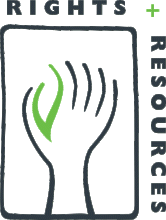Resource information
In recent years, there has been growing attention and effort towards securing the formal, legal recognition of land rights for Indigenous Peoples and local communities. Communities and Indigenous Peoples are estimated to hold as much as 65 percent of the world’s land area under customary systems, yet many governments formally recognize their rights to only a fraction of those lands. This gap—between what is held by communities and what is recognized by governments—is a major driver of conflict, disrupted investments, environmental degradation, climate change, and cultural extinction. While community land rights are garnering greater attention in national and international circles, the actual status and extent of legal recognition has not been well understood.
This report seeks to contribute to this field as the first analysis to quantify the amount of land formally recognized by national governments as owned or controlled by Indigenous Peoples and local communities around the world. The study includes data from 64 countries comprising 82 percent of global land area. It builds on the ongoing work of the Rights and Resources Initiative (RRI) to track ownership and control of the world’s forests, and expands that research to identify lands that are owned and controlled by local communities across all terrestrial ecosystems in the countries studied, including such diverse lands as grasslands in China, taiga in northern Canada, and rainforests in Brazil. The finding that only 18 percent of land area in the countries studied is formally recognized as owned or controlled by local communities and Indigenous Peoples reveals the level of challenge facing the world today.



